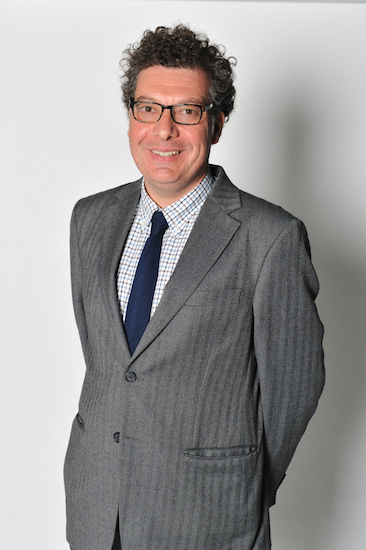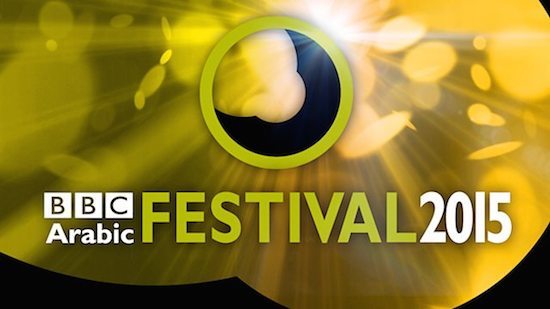The definition, as well as the control of power have definitely changed in the last decade. In the Arab world, the exact moment when the shift started can probably be traced to the dramatic events of the Arab Spring. Even cinema in the Middle East has since then focused on themes that explore this upheaval of power, from dictatorships to control by the people. It may not be the perfect society we all dream of in our Utopian fantasies -- with ISIS, sectarian violence and unstable governments choosing the wrong side being at an all-time "high" -- but it's definitely a changing, modernizing, new type of Arab world. And anyway, nothing good ever comes easy, right?
For me, film is always the way to "decode" what is happening around me. If I want to learn about a far away world, or a little known culture, I turn to cinema, perhaps because along with the obvious education it provides, filmmakers also wrap their message in an emotional package. The news is a beautiful way to get all the facts, then cinema steps in with the humanity.
So when I heard of the BBC Arabic Festival, soon to kick off its second edition in London, I was excited. Excited because here is one groundbreaking news outlet, known the world over for their integrity and guts, delving into the cinematic world I love so much, to create an event that can change the world. Or at least make it a little bit more connected, a tiny bit better.
I caught up with Tarik Kafala, Head of BBC Arabic, who enlightened me on the theme of this year's festival -- 'Rulers and Ruled: Power in a Changing Arab World' -- as well as the reasons behind starting the BBC Arabic Festival, a free-to-all event which will run from October 30th to November 2nd, at the Radio Theatre at BBC Broadcasting House in Central London.
This idea of 'Rulers and Ruled' which is the theme for the second edition of your festival, is definitely a hot topic. Who do you think are the most important leaders today, in the Arab world?
Tarik Kafala: The Arab world is experiencing complex changes and stresses of all kinds, be they social and generational change, economic problems or struggles for power. The theme of this year's festival was chosen to try to get at these shifts in power. We're not interested only in power in the political or military senses. We want to explore the shape and nature of power, power of the state and of the demonstrators, power in the home, in neighborhoods, at school and so on. Power can manifest itself in state apparatuses and institutions, or in social and cultural norms.
Do you think that filmmakers from Arab countries hold a very special responsibility, with what they should feature in their films? I mean, as a journalist you've made it clear what you feel is your responsibility to make things better, to create a bridge instead of erecting a wall of misunderstanding... Do you think filmmakers need to be equally aware?
Tarik Kafala: About three quarters of the films that will be shown at the festival are non-fiction films. Traditionally the responsibility of the documentary filmmaker, the non-fiction filmmaker, is to convey information that is well-researched, aims at a more general truth. Fiction filmmakers, however, tend more to be story tellers. Their fiction comes more from the imagination, which is arguably more emotional and personal. I'd say the responsibilities -- not to incite, to tell the truth from their point of view as best they can, to explain and enlighten and sometimes to entertain -- are the same whatever genre you work in. I don't think that Arab filmmakers have a greater responsibility than any others. It's just that our region seems to be in so much turmoil.
What was the reason, or the light bulb moment, the idea for starting the BBC Arabic Festival?
 Tarik Kafala: The BBC Arabic Festival was launched for a number of reasons. We wanted to hear people's voices from the ground in the Middle East; we wanted to engage with the filmmakers of today and to share the wealth of their experiences and vision with a UK audience. And by showing most of the selected films on our TV channel, we wanted to give those filmmakers a much wider platform, in the Arab world itself. Also, the BBC Arabic Young Journalist Award is an important part of why we are doing this. We wanted to find and nurture one young journalist a year whose potential is clear.
Tarik Kafala: The BBC Arabic Festival was launched for a number of reasons. We wanted to hear people's voices from the ground in the Middle East; we wanted to engage with the filmmakers of today and to share the wealth of their experiences and vision with a UK audience. And by showing most of the selected films on our TV channel, we wanted to give those filmmakers a much wider platform, in the Arab world itself. Also, the BBC Arabic Young Journalist Award is an important part of why we are doing this. We wanted to find and nurture one young journalist a year whose potential is clear.
Last year's festival was a success, way beyond our expectations. London film fans interested in world cinema came out alongside Arabs living in the UK. This year, we hope to build on this. We're going to show films on the subjects that dominate the news agenda such as migration and exile, and films about issues that do not appear on the news such as family, gender or sexuality.
Do you ever think of taking it around the world? Where do you think such an event would be most needed?
Tarik Kafala: Taking the festival around the world is challenging and costly. Hosting the event at the BBC in London works because we have the facilities for the event here in London and because part of the objective of the festival is to bring the films to UK audiences.
However, we have already been invited by several other festivals, including in the region, to partner with them and screen selected films. It would be great to partner with somebody who could host the festival. We are certainly looking into this.
Why make it about cinema and music?
Tarik Kafala: The Festival uses cinema, but it is mainly a factual and documentary showcase, with journalism at its heart. The musical performances are another means for London audiences to explore some of the cultural and creative sides of what we are putting on. The music, chosen by us, echoes the same ideas of the festival themes -- migration, protest and the yearning for freedom of individuality.
What is your hope for this chaotic, complicated, divided landscape of ours these days? Is there hope actually?
Tarik Kafala: Of course, there is hope. But, as you say, it is complicated, very messy and change is accelerating. The change seems to be where the hope lies, I think. But we're straying into very subjective territory. So I'll leave it at that.
All images courtesy of the BBC Arabic, used with permission.

